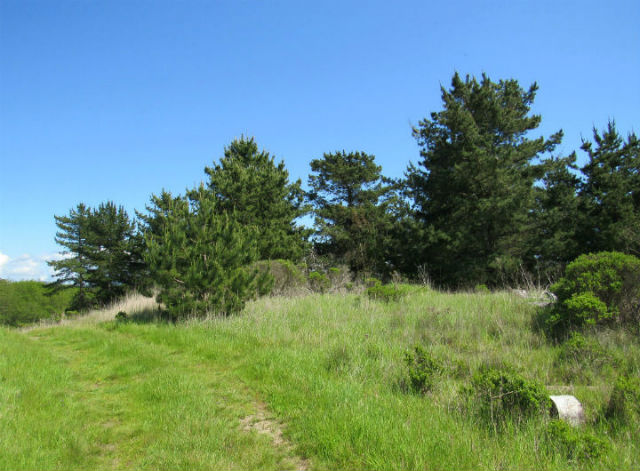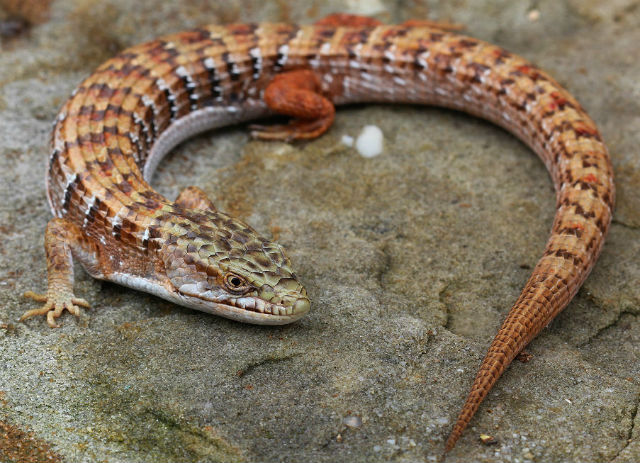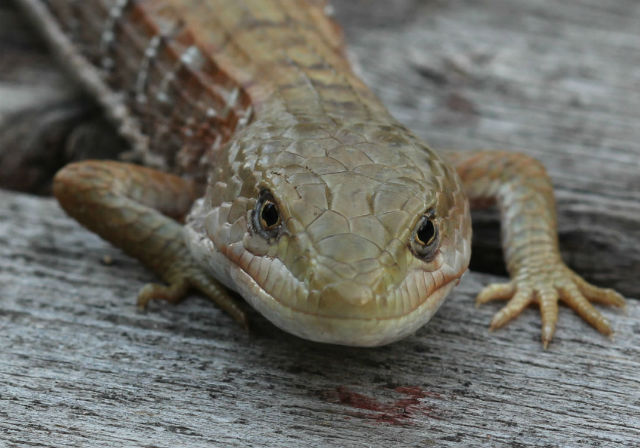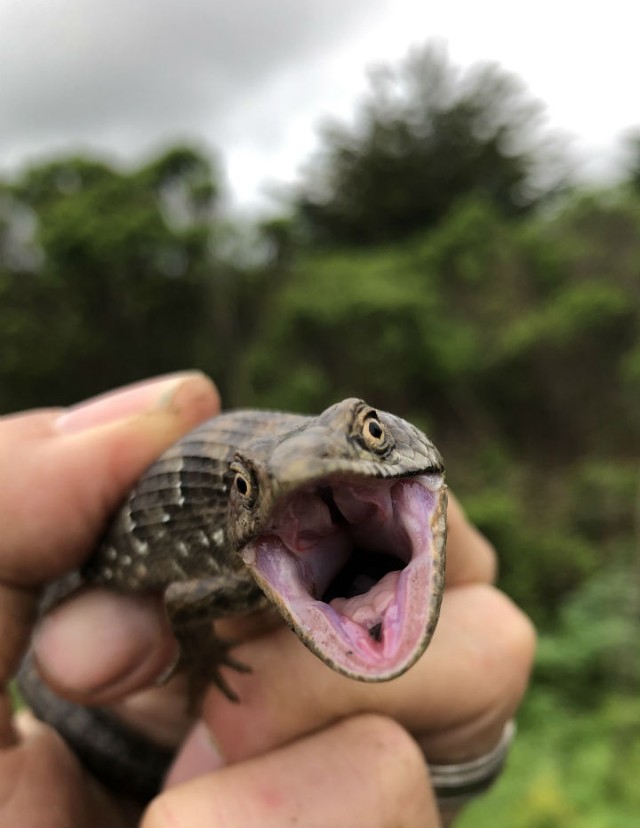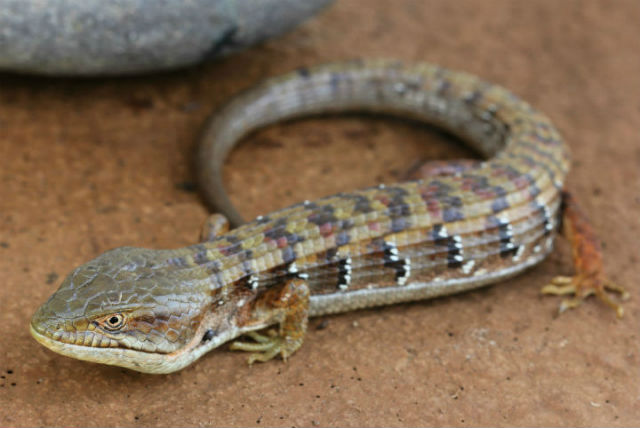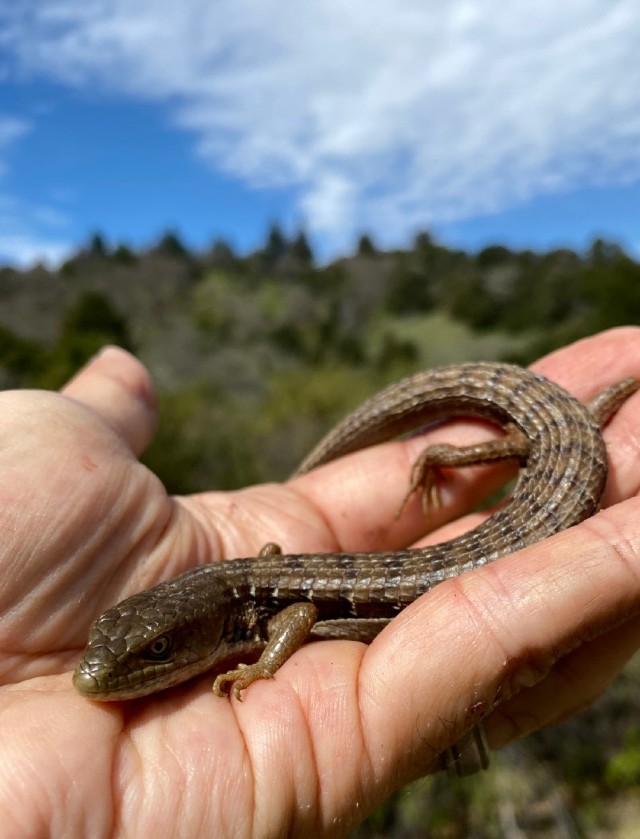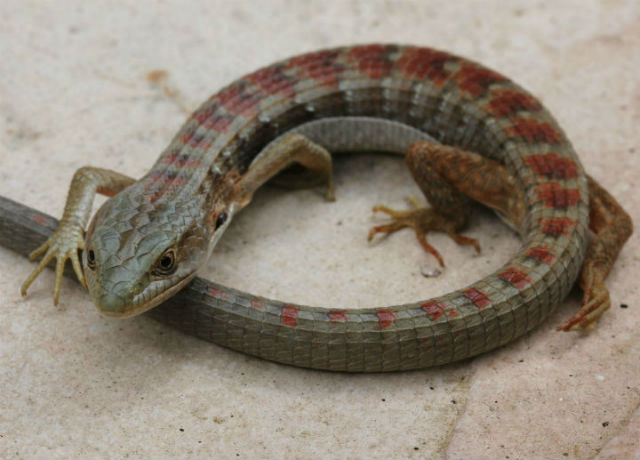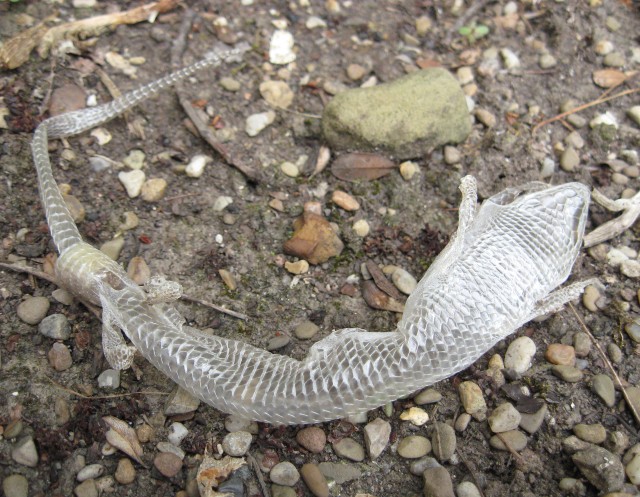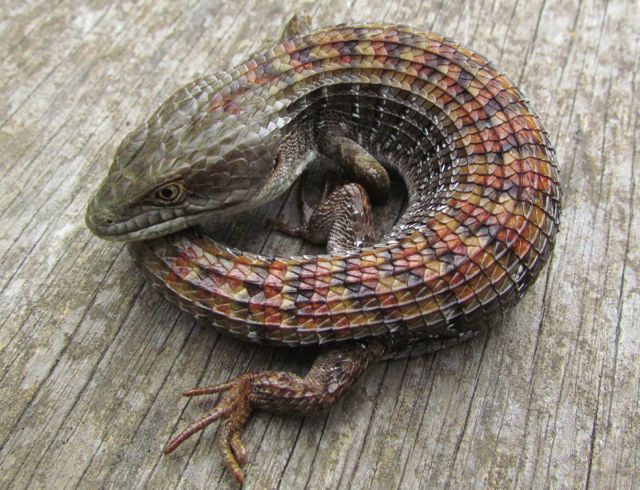This is a relatively common lizard native to the Pacific Coast of North America. I enjoy seeing it when I visit California.
Their backs are brown with black spots that form numerous bands across the body’s width. They sometimes feature orange, yellow and white markings.
These reptiles live in a variety of habitats. I tend to find them in grassy, brushy, or rocky openings within forested areas. I often find them hidden underneath logs.
The common name “alligator lizard” is a reference to the fact that the back and belly scales of these lizards are reinforced by bone, as they are in alligators.
This creature has small legs and a long, somewhat prehensile tail that can be twice as long as its body. Like many lizards, they can detach their tail deliberately as a defensive tactic; the tail will grow back, although generally not as long as the original.
One interesting characteristic this lizard has is a fold along each of its sides. The folds allows its body to expand to hold food or eggs.
These lizards are thought to be more closely related to snakes than most other species of lizards. Like snakes, they shed their skin in a single intact piece by turning it inside out as they crawl out of it.
The Southern Alligator Lizard eats small arthropods, slugs, lizards, small mammals, and occasionally young birds and eggs.
This a a neat “classic” American reptile that is fun to come across while out herping.

